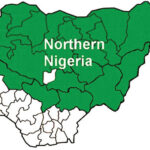The first thing to do about poverty in Northern Nigeria, and the rest of the country, is to have conceptual clarity about poverty and empowerment in our own specific context. What we have in the North is not poverty, but mass poverty, by which I mean that it is not just the poverty of individuals, but of the whole society.
Poverty alleviation programmes in Nigeria, including those by this government, have always tended to target pockets of the poor here and there, and then seek to reduce their poverty by providing such things as micro-financing to run micro-businesses. But in a country where more than half of the population of 200 million people are officially poor; such tokenistic schemes cannot solve the problem.
- Soldier sentenced to death for killing superior in Borno
- Soldier sentenced to death for killing superior in Borno
So the Nigerian government must first accept that we have a problem of mass poverty here and the solution to it is nothing short of a wholesale economic transformation of the country, the kind of transformation that can lift whole communities. Fanciful programmes like FARMERMONI, TRADERMONI and MARKETMONI, are just that fanciful, regardless of who designs or implements them.
As a country, it is time we abandoned such programmes which gulp billions in favour of time-tested strategies. All poverty alleviation programmes should focus on just one thing: jobs, jobs, and more jobs for all. And a majority of these jobs need only have three characteristics. They should be readily available in large numbers and across all sectors of the economy. They should require the barest minimum of education and skills. And finally, the jobs should guarantee a living wage enough to lift whole communities out of poverty. This means three things: mass literacy and numeracy, mass employment and an economy-wide living wage.
In Nigeria, education simply means university education. Anything short of that is generally regarded as almost no education at all. But the education that a person needs to get out of poverty does not require a university degree. In fact, it can be just as basic as being able to read and write with meaning, because even in the most advanced economies, 70 -80 percent of all jobs do not require a university degree at all.
So our average Northern woman needs only to be able to read and write with understanding, and to be able to do basic things with numbers, even in Hausa, and she’s ready for the world of work. Universal literacy and numeracy can be achieved without formal schooling, and at the cheapest costs, but with the largest gains, to the government and the country, since there are enough educated men, women and girls in the region to teach these most basic of life skills.
Besides, literacy and numeracy are empowering in their own right. As the Nobel Prize economist, Amartya Sen, once noted, few things are as enabling as being able to read a text message or send one, particularly for those who could not do these before for most of their adult lives. Moreover, once literate, a person becomes exposed to a limitless range of opportunities for further learning: at a formal school, at work, or through all media. So, for me, any poverty reduction scheme that does not incorporate this most empowering of capabilities is simply inadequate.
Second, armed with some literacy and numeracy skills, our average woman in Northern Nigeria can be employed, rather than the presumption that she employs herself, and others, which is what micro-financing means. The problem is that where would such a woman, or man, work? This is where mass employment comes in. There is only one way to reduce poverty for more than a hundred million people, and that is to get the highest percentage of them into jobs and then to pay those jobs above-poverty-level wages. Any other approach is merely to tinker with the problem.
But mass employment itself can be achieved only by first having mass employers, that is, large businesses or sectors that can employ thousands of low-paying jobs. This means large scale agriculture, large-scale manufacturing and large-scale services. You need, to give just one example, hundreds of farms each of which can employ 1,000 people or more. And then you need the same large businesses in manufacturing and services. You just have to have these kinds of large-scale businesses and jobs in Nigeria. Anything less is absolutely out of the question.
The average woman, or man, in Northern Nigeria, and elsewhere, can pick cotton or oranges, can pluck chickens, can cut clothes or meat, and much else besides. We must have these kinds of industrial-scale jobs in all sectors in Nigeria. And herein lies the missing gap in Nigeria’s poverty reduction strategy, and indeed, economic development policy more broadly; to grow the poor, you must first grow the rich.
In the array of mass employment sectors, there is one particularly suitable for the average Northern woman: social care. With a large-scale health and social care sector, hundreds of thousands of women, and men, in the North, and across the country, can provide basic care services for the sick, for the elderly, for school children, for the extremely poor, for the environment, and more. These are jobs the women already do for free. The trick is to transform them into formal jobs by creating a large industry out of it.
When you hear ‘developed’ or ‘development’, this is one of the things it means. And it doesn’t require any dogon turanci.
 Join Daily Trust WhatsApp Community For Quick Access To News and Happenings Around You.
Join Daily Trust WhatsApp Community For Quick Access To News and Happenings Around You.
